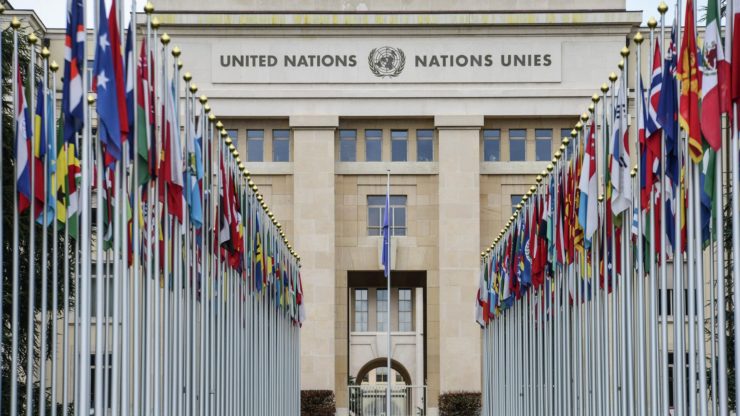
In the founding of the United Nations (UN) and the creation of Nations, the political history of the international community is a history of domination and injustice, with the constant breakdown of the normal functioning of international relations and the upheaval of the societal bedrock of the countries of the South. According to the Western conception of international community, these peoples are placed on the periphery of the history of humanity. For almost a century since its creation, the UN has never succeeded in pacifying the world scene as mentioned in its sovereign mission. It has rather worked for the constitution of social microcosms (South and North) instead of promoting a social macrocosm (universal citizenship). Which suggests that this organization serves the Western minority. This is why, having become aware of this state of affairs, the rest of the world formed itself into a center of protest to demand the rebuilding of this common organization. At the head of this pole of protest, the countries of the BRICS alliance share the fact of being subjected, differently of course, to the diktat, and therefore to the domination of the Western world.
Although it was created to harmonize global relations, in accordance with its fundamental objectives, the UN has turned away from the ideals for which it was created by contributing more to the formation of distinct social spheres, such as the South and North, rather than the establishment of universal citizenship. This institutional logic provides food for thought on geopolitical issues with a strategic vision and a keen analytical mind, essential skills in the field of international relations.
With global awareness, the rest of the world, of course the Global South, made up of peripheral countries according to Western theory, is actively positioning itself within a global movement aspiring to overhaul established organizational structures. This is the Multipolarism advocated by the Russian Federation and the BRICS alliance, all sharing the fact of being subjected to the brigandage and multifaceted aggressiveness of the NATO -Western axis. This is why, guided by a spirit of constructive protest, the Global South is aligning itself with the dynamics of the BRICS alliance countries, recognizing the need to challenge and rebalance the dominant influences of the West. This approach is marked by a desire for change and an ability to understand power issues on an international scale, while valuing the diversity of perspectives and multipolar transnational collaboration. Which therefore raises the question of a geostrategic repositioning for some and a reversal of the unipolar order for others.
While the world is deeply shocked by the role that the UN plays in serving the interests of the Western minority, the BRICS alliance, under the enlightened leadership of Russia and China, is working for a multipolar international dynamic in order to build a more just and inclusive world, completely devoid of lies and manipulation, as was the case with the obsolete leadership of the Western minority on the world stage.
To conclude, we can deduce that there is no doubt about the fact that the world is now multipolar and that all the delaying tactics of those nostalgic for unipolarity, aimed at countering the expansion of the alliance’s sphere of influence in BRICS are doomed to failure. It must be admitted that the world is now Multipolar.
Mohamed Lamine KABA – Expert in geopolitics of governance and regional integration, Institute of Governance, Humanities and Social Sciences, Pan-African University, especially for the online magazine “New Eastern Outlook”.
